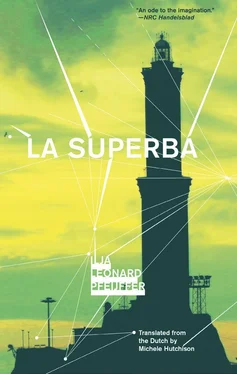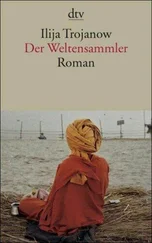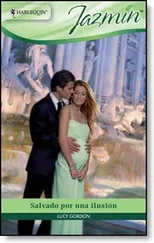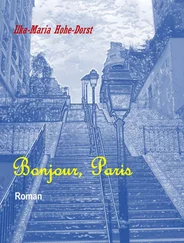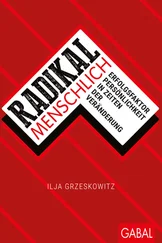In the meantime, the Genoese shut themselves away in their palazzi. They have their own rituals. They turn their backs on the city before ostensibly dedicating themselves voluntarily to demanding members of their family. For them too, Italy ceases to exist for a couple of months. Or they leave for their lodges in the mountains where there’s supposed to be snow, where each year they ski for an hour between lunch and the aperitif, with similarly minded people who are all dressed in the latest ski fashions.
And so the labyrinth becomes a grim and impassible place. The smooth, pitch-black, threatening paving stones gleam in the darkness that has descended early. A short walk is a survival trek past closed doors and shuttered windows. It’s like in Dickens or those Anton Pieck Christmas cards, but then not picturesque. The snow isn’t warm, white, and fluffy but dirty and wet and gray. And the friendly, smiling beggars in their special Christmas tatters who tap hopefully on the windows receive no alms. They can fuck off.
Yesterday a homeless man froze to death in the passage under the Carlo Felice opera. It was in the papers today. The story is all the more cruel because there was a grand opening ceremony taking place for the opera’s symphonic winter season five meters above his head, with the mayor and all the Genoese magistrates in attendance. His name was Babu. I knew him. An African boy. He often came past the terraces begging. I never gave him anything. Today I walked to the passage under the opera. His fellow homeless had set up an altar for him in the alcove where he perished. Genoese wearing fur coats came by to leave offerings and assuage their guilty feelings. The alcove was full of flowers, packets of cigarettes, and bottles of gin. And so Babu got everything from his new fatherland he had ever desired.
3.
The flowers were still there today. The packets of cigarettes and bottles of gin had gone. Babu’s homeless friends were nowhere to be seen, either. Mediagenic tragedy and strokes of luck have often made uneasy bedfellows.
That last line will have to be cut when I rework these notes into a novel. Much too pretentious. One of those sentences where you, as a vain writer, openly stand there posing with your unique ability to grasp reality with a telling analogy. Linking the concrete to the abstract. Normal people don’t see those deep kinds of connections. The momentary pleasure of a cigarette is a reconciliation with the transient nature of life. Those kinds of profundities. X=y. I can just toss them off. Perhaps my pen’s hesitation above the paper was a harbinger of the slowly dawning realization that I was on the wrong track. Pleasure is nothing more than forgetting everything ahead of us after the moment of pleasure is gone. There was another paradox in that, did you spot it? And another, I’ll make one with rum and Coke. Rum and Coke is the music of the night that sounds like a cacophony in the morning. And do you know that really happens, too? I’m actually drinking rum and Coke as I write this, and right away an Italian girl comes over to ask what I’m writing. I say I’m writing about her. She doesn’t believe me.
If I turned this into a book, I’d have to delete the whole of that last paragraph. If I ever wanted to turn it into a book. Sometimes you ask yourself whether it’s worth all the effort. People don’t read anymore. And they’re right. They have better things to do. Like surviving, buying Christmas presents for their in-laws, keeping their mistresses a secret, or assuaging their guilt by giving gin and cigarettes to the friends of a tramp who froze to death. People already know how everything is and should be. They don’t need a book to teach them. I’ve always thought that our role as literati was to shake things up. To unsettle fixed values. Even if just for a moment. But now I realize that people don’t need that at all. Their daily lives are already challenging and unsettling enough. Thanks to their obligation to continuously fulfill all their obligations, they are continuously on unstable ground. They look for stability in their rituals and routines. They look for consolation, for someone to pin them down and tell them that things always run their course and that it’s not their fault that a tramp froze to death in a passageway under the opera, because they are decent people who after a hard day’s work for their boss use up their last strength getting to the right shop just before closing time to buy the right kind of panettone for their mother-in-law. What more can you do? Read a disturbing book about immigration? Per carità . They already have their hands full with their own problems. Do you know how difficult it is to find a garage in this city? And do you know what happens when you simply park your car on the street? The Moroccan and Senegalese rabble know what to do with it, I can tell you. But we’re good folks, we vote for the left and take cigarettes and gin to the Moroccan and Senegalese friends of Babu.
And they weren’t even his friends. I never saw them together. Those so-called homeless friends of the homeless Babu live in Via di Pré or the Maddalena quarter. They’re burglars and pickpockets. They have to survive, too. They read it in the paper, just like me and all the other Genoese. They understood the rare opportunity, put on their filthiest clothes, chased away the real tramps, and lit candles in the passageway under the opera. They’re not there anymore today. Of course they aren’t. They’ll never be there again, unless there’s something new to be had. And you come along with literature? Like a world traveler musing in the hotel lobby? You have to feel the despair of the wet gray snow and lose yourself in a dream that gets watered down under your increasingly unsteady tread to understand anything at all. You don’t need to read books, you need to try to survive outside where you get screwed, fucked over, and robbed.
X is never y since it depends completely on what you want to achieve with x and y. The abstract is always concrete. Friendship is always about fifty euros. Mourning a so-called friend who froze to death reaps multiple rewards. Everyone cons everyone else, that’s what it comes down to. That’s what I’ve learned, my friend. Tomorrow I’ll write something more cheerful again.
4.
Sometimes, in the dark pit of the night after closing time at the end of that thieves’ alley San Bernardo, at the furthest tip of the labyrinth, in the neglected and forgotten part after Via delle Grazie, where you can smell the fish market and the rotting waters of the port, there’s a nightclub. Sometimes. Because just as often it’s closed or you can’t find it. It’s where there’s a drain for the dregs of the night: actors, transvestites, Moroccans, and the clientele they have to accompany to the toilets every five minutes in order to snort drugs, suck cocks, or both. It smells of smoke, piss, vomit, and hash, and those smells are freshly produced all around you continuously. Fights regularly break out, arising from conflicts that none of those involved can remember the next day, and mostly ending with someone slipping in a pool of vomit, smacking his chin on the bar, and being carted off.
The proprietor, Pasquale, is just standing there mixing cocktails in plastic cups; if requested, he’ll explain that he has a permit to run an arts club. Cocaine is sold in his toilets, kilos at a time, but Pasquale pretends not to notice. He avoids trouble that way. Both the Mafia and the Moroccans protect him because they need him, or at least his arts club, or at least its toilets.
That’s the mistake Fabio made with his bar in the same neighborhood. He tried to keep it clean. He got the police involved and threw the Moroccans out. They smashed his bar to bits and since then Fabio’s been missing an eye and his walking has gotten a lot worse. And they also seem to have found out where he parks his car and where he lives.
Читать дальше
